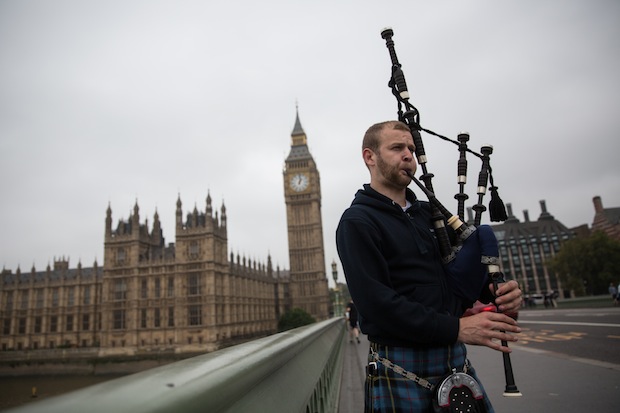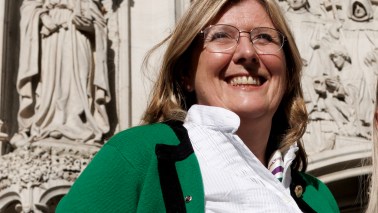Lord Ashcroft’s post-referendum Scotland poll gives politicians claiming they’ve ‘heard’ voters a number of clues if in reality they’re still a bit confused.
It suggests that those last few days of panic from the ‘No’ camp didn’t really shift as many voters as some might have thought. The poll says 28 per cent of ‘No’ voters made up their mind within this year. 72 per cent had already decided before September 2013. Only nine per cent had settled on ‘No’ in the past week.

And the reason more frequently cited for voting ‘Yes’ than any other was ‘disaffection with Westminster politics’, with 74% of those in favour of independence naming that, then 54 per cent also picking the NHS, followed by 33 naming tax and public spending. For No voters, the biggest issue was the pound, which does vindicate Alistair Darling rather for banging on about currency union, even when some in his own camp thought he needed a change of tack. 37 per cent cited pensions, followed by 36 who named the NHS as a reason for voting ‘No’. Similarly, 47 per cent of No voters said the most important reason for voting no was that ‘the risks of becoming independent looked too great when it came to things like the currency, EU membership, the economy, jobs and prices. 

When David Cameron said ‘we hear you’ to those who had backed independence, he was referring to the ‘devo-more’ promise that he and the other party leaders had already made. And they are right to respond: 70 per cent of ‘Yes’ voters said the most important reason for their vote was ‘the principle that all decisions about Scotland should be taken in Scotland’.
But what about what other big stat? The 74 per cent of ‘yes’ voters who named ‘disaffection wit Westminster politics’? Perhaps they were disaffected with a government far away and currently elected by few Scots making decisions for Scotland, which devo-more will address. But that’s not the only thing: it’s a frustration with politicians, and with the way politics is done. Ed Miliband tried to acknowledge this in his speech, saying the word ‘change’ over and over again. But somehow – and this is not a specific criticism of Miliband – it felt a bit like he’d just left a song on a loop from the last time something awkward happened to the Westminster Establishment.
Talking about anti-politics sentiment is one of the ways to suggest you’re in touch and down with the kids these days. But it’s also something that you can get away with talking about while apparently doing nothing to address it. In my Telegraph column today, I report a worryingly relaxed attitude at the top of Westminster parties about addressing this problem, while some backbenchers have been hunting for a solution. But while coming close to losing the Union is of a magnitude far greater than the European elections, or bruising local election defeats, it’s difficult to feel that with this result, anything really will change in the way politicians do business with voters, even if they do bring forward those changes in the structure of government.







Comments